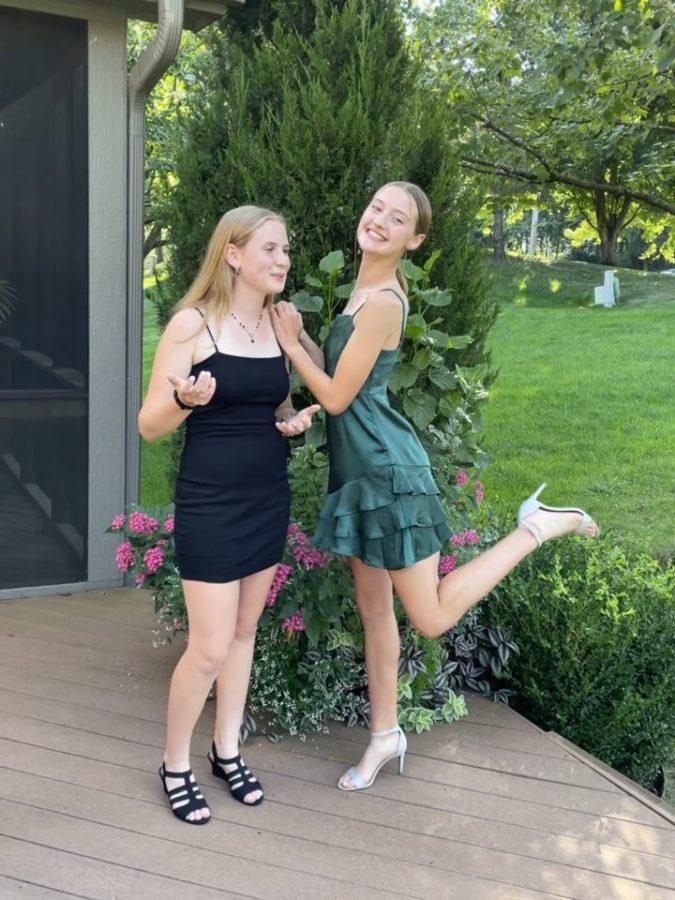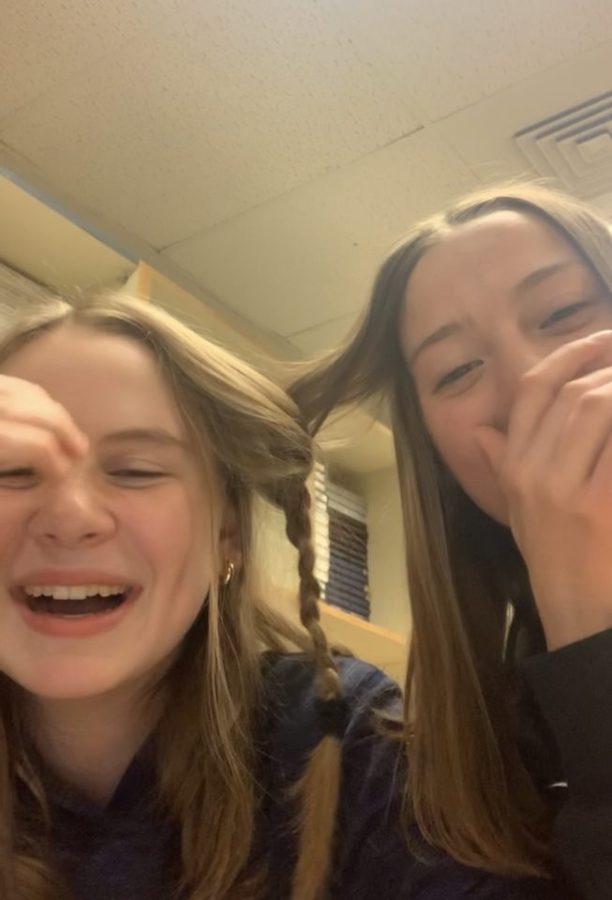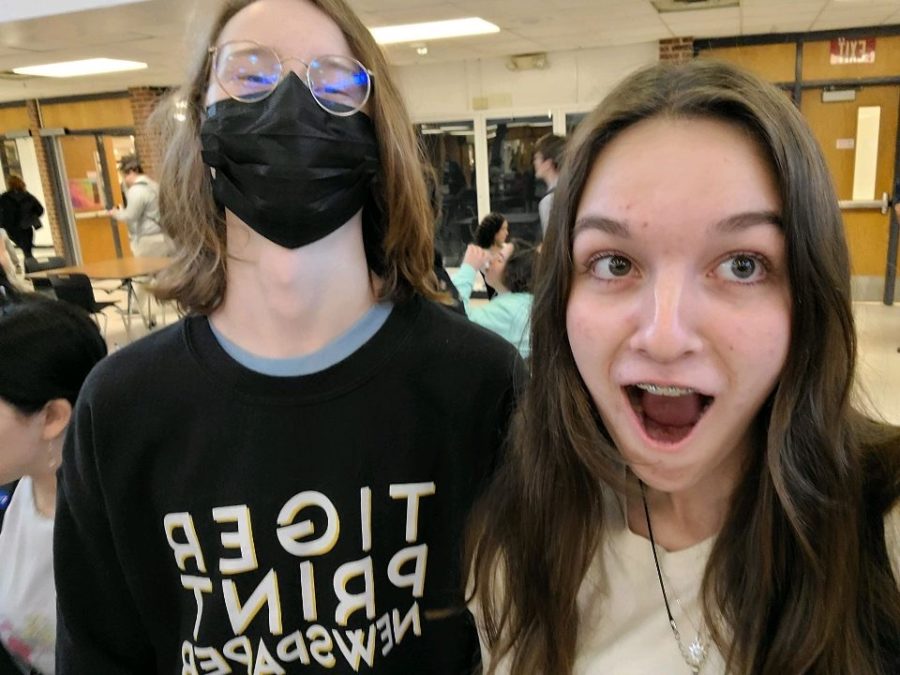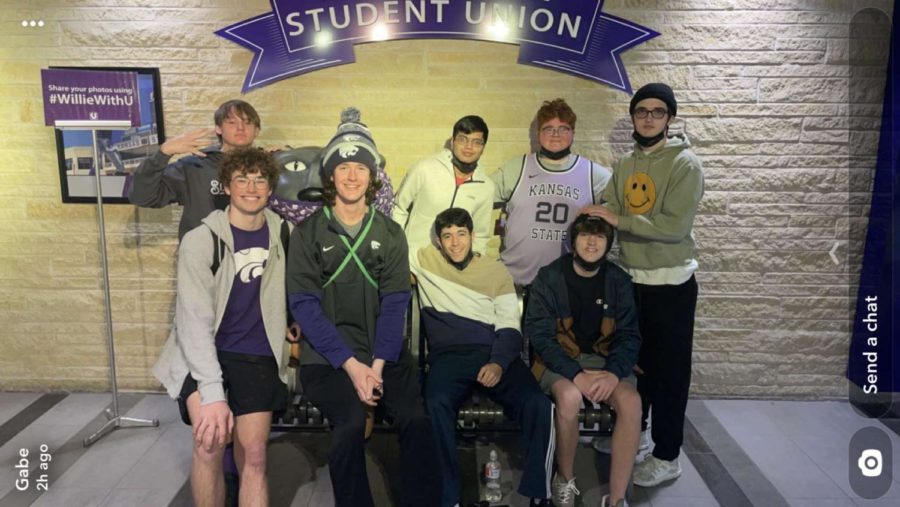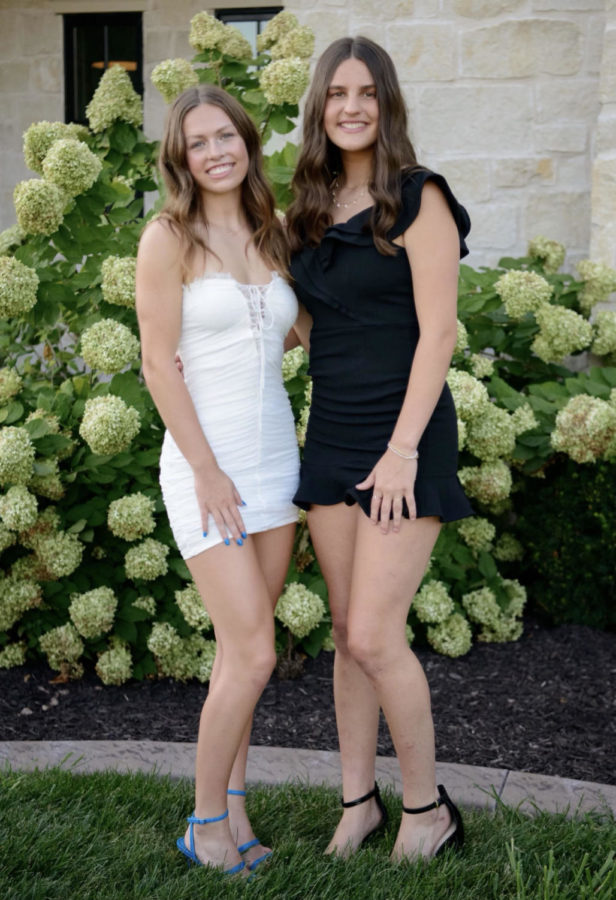Fulfilling Friendships
students describe meaningful platonic relationships at BV
Plant-Powered Friendships
Horticulture Management club strengthens senior bonds
In high school, one of the most common pieces of advice is to get involved in various activities. For seniors Sarjoun Fardoun, Arnav Jain, and Henry Hornug, this advice allowed new friendships to sprout and older ones to blossom through Horticulture Management club.
Horticulture Management club is a satirist club and tradition in which the club leaders adopt personas of plant-obsessed environmental activists with a feud against Environmental Club, all while hosting comedic, interactive meetings.
This club was the beginning of the trio’s relationship.
“We talked to each other during the first Horticulture Club [meeting] freshmen year,” Jain said.
The continuation of the club, however, strengthened their bonds.
“What really brought this friend group together was one common cause. It was horticulture management,” Fardoun said.
Fardoun, friends with both Jain and Hornug, introduced the two to each other to create the group.
“We forged the two friendships together under a little tree,” Hornug said.
Their friendship is truly unique, being centered around the club’s events.
“I think what we really like to do together for fun is mainly focused on planthood and being a proponent for the plants to bring social awareness to plants,” Fardoun said. “I think devising those activities [is] really what we like to do together as a group.” Fardoun said.”
Friends who have common interests feed off of each other, only making the love for their cause stronger.
“I think what really inspires me about them is their fervor — their desire to bring social awareness to plants,” Fardoun said. “Their passion towards it gives me passion. ”
The friends also pride each other on their hard work.
“I like how they’re so committed to what they do,” Jain said. They get that presentation done, no matter how much homework they have.”
However, it’s not all sunshine and photosynthesis in the group. The teamwork required by club preparations can lead to frustrations.
“Me and Sarjoun do most of the heavy lifting — the important stuff,” Hornug said. “Arnav, maybe his role isn’t as useful and maybe he doesn’t play as big of a part in our club as he would like.”
Jain, however, also has lingering issues with his fellow plant-lovers.
“Should I remind you about your debt?” he said, in response to Hornug.
The camaraderie of Horticulture Management Club has also allowed the seniors to branch out in terms of their friendships.
“We’re hoping to pass the torch on to the next generation,” Fardoun said. “We hope we started a plant movement.”
The Horticulture Management club is also one of the largest clubs at BVHS, allowing for a greater number of platonic connections.
“In regards to the expansion of our group, I think we have maybe 50 to 100 to 1000 little saplings that are really dedicated to the cause,” Fardoun said. “It’s really inspiring to see this is such a ubiquitous thing around the school.”
Despite the lighthearted nature of the club, the friends claim their conversations remain quite serious.
“We only have profound talks. It’s never surface level,” Hornug said. “We go as deep as the roots of a big oak tree.”
In the end, the friendship of the three environmentalists has allowed them to reach their objectives of supporting the plants.
“We give voice to the voiceless,” Fardoun said. “We tell ourselves someone’s got to represent. Someone has to be a delegate for them.”
The next and final Horticulture meeting will be on May 6.
Dear Bestie,
Seniors discuss the importance of school friendships
Having school friends you’ve known for a long time can create lifelong connections and growth. School friendships help give a feeling of belonging and acceptance. They aid the growth of understanding, caring, independence, compassion, and forming a sense of community. BV Seniors London Haggadone and Ellie Graham share how school friendships provide a healthy environment.
“School friendships make school a richer experience,” Graham said. “[Friends] are people you can collaborate and make memories with [to] define your high school experiences.”
A good friend will not only guide you, but will support you through tough times and accept who you are as a person.
“A good friend means a lot to me and is one of the most important things because having someone to rely on and have your back is a good feeling,” Haggadone said.
The most important aspects of a memorable high school experience are the memories made with friends, as well as the thoughts and feelings you share with each other.
“[London and I] first met in middle school when we had a couple of classes together,” Graham said. “We reconnected and got close in our U.S. History class in our junior year, and we’ve been friends for over a year now.”
Balanced true friendships sometimes have peaks and valleys, but they help the friends grow and build t
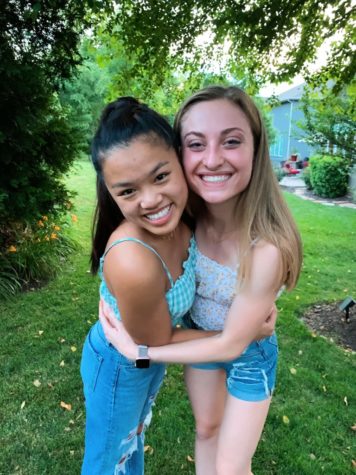
“My favorite memory with [London] is our Facetime calls during online school and after-school Crumbl runs,” Graham said.
rust with each other since they both know they will come back for each other.
“Our friendship is the kind where you can pick up right where you left off even after not seeing each other for months,” Haggadone said.
There are always opportunities to help improve, not only for yourself, but for your relationships with others.
“A good friend is someone who keeps you grounded, supports you in your endeavors, and loves the authentic version of you.” Graham said.
When sharing solid friendships, reminiscing with friends improves the quality of life.
On the other hand, Haggadone’s favorite recollection is from outside of school.
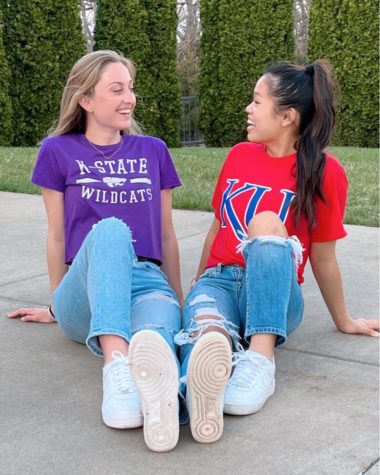
“Ellie and I spent a lot of time taking drives and eating lots of froyo,” Haggadone said.
Sharing what qualities you like about your friend is important because it gives the person a feeling of belonging and security, cherished by the people you most care for.
“London is the person I can always go to for advice and have a laugh with. I admire her tenacity, honesty, and willingness to stand up for her beliefs,” Graham said.
Haggadone describes her friend’s characteristics and how grateful she is to have an amazing friend.
“I like how driven Ellie is. Once she starts something she will complete it — no questions asked,” Haggadone said. “I’m grateful that she’s always there to talk to. She’s the one I will go to first when I need advice.”
The beauty of a great friendship is that you get to choose your friends. Graham gives advice for everyone to continue having healthy school friendships.
“Keep open communication, be the best support system you can be, and treasure the little things,” Graham said.
Cul-De-Sac Camaraderie
Lasting friendship forms from living next door
A simple move into a cul de sac sparked a lifelong friendship for seniors Trinity Mayer and Sophie Deveney whose earliest memories are from their time together.
“From my standpoint, it felt like we were both born into the house [as if] she was always my neighbor. I think we were three when she moved in,” Deveney said. “From as early as I can remember, Trinity was my neighbor — she was always there.”
Mayer has a distinctive first memory with Deveney after her move into the neighborhood.
“She burned her foot on her dad’s motorcycle and had to go to the hospital,” Mayer said. “She was five and it was a Tuesday. We were playing tag.”
The incident also proved memorable for Deveney who recalls the details.
“We were running around by my dad’s motorcycle — by ourselves, I think,” Deveney said. “My dad just got off his motorcycle and he specifically came up to show me and was like, ‘Don’t touch the motorcycle. It’s hot.’ Then, I put my foot on it and the bottom of my foot burnt off.”
Although they attended separate schools, they spent most of their elementary years together.
“I went to St. Michael’s, [unlike Deveney], so we would go to school, come home and play.”
Deveney enjoyed the time they spent together, especially out in the yard.
“Playing outside with Trinity was something I always looked forward to every day,” Deveney said. “All of elementary school I would get home before her and wait for her mom’s minivan to pull in.”
Although they remained next door to one another, the chaos of their teenage years left them feeling distant and missing the simpler times from when they were young.
“When we went to middle school, we had a disconnect for a while and we didn’t talk for a couple of years,” Deveney said. “We definitely spent more time together when we were younger because we didn’t have any other friends, so we spent literally every week [together] and we would have sleepovers.”
Even through time apart, Mayer feels the connections they share will always hold them together.
“We were just in that middle school, self-absorbed [phase] and forgot about each other for a little bit,” Mayer said. “We could go for years without seeing each other — it’d be the same when we got back.”
The perks of living next door continue to make them closer friends than most.
“If I’m ever bored I literally just walk into her house,” Deveney said. “I know her garage code so I can just walk in.”
Mayer agrees that there are major benefits.
“I dog sit for her all the time,” Mayer said. “Her mom pays really well.”
Their bond has also been solidified through their favorite shared activities.
“We sing karaoke together sometimes,” Deveney said. “When we were younger we would watch High School Musical a lot and we still do that. We also watch Friends together.”
As senior year comes to a close and Deveney and Mayer transition from being neighbors to moving 1664 miles away to separate colleges, both can agree their friendship will persevere.
“I don’t think we’ll ever fall out of touch — not necessarily because of each other, but because of our families,” Deveney said. “Even if I didn’t keep in touch with Trinity, I think it’d be impossible because our parents are good friends.”
As the pair begins to imagine life as friends, but not neighbors, Mayer leaves Deveney with a message of both apology and appreciation.
“I’m sorry I told Aidan that you had a crush on him when we were little,” Mayer said. “I felt like when we were younger, even if I didn’t have any friends at my school, you were always there for me.”
Deveney also has a note for her friend next door.
“I would say thank you because the best part of having a cul de sac friend is no matter what was going on at school, you weren’t ever a part of that. I could always tell you anything.”
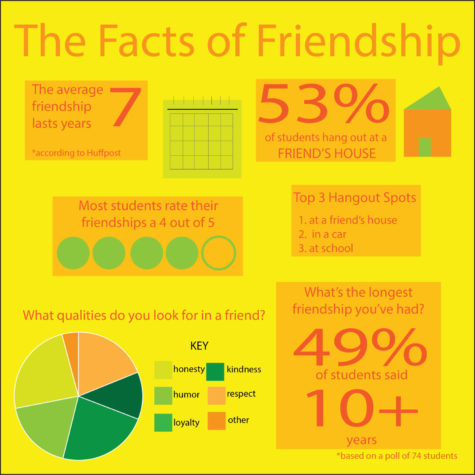

Stephanie Kontopanos is a senior and the assistant editor of The Tiger Print. This is her third year on staff and her second year being the Newspaper Grandma...
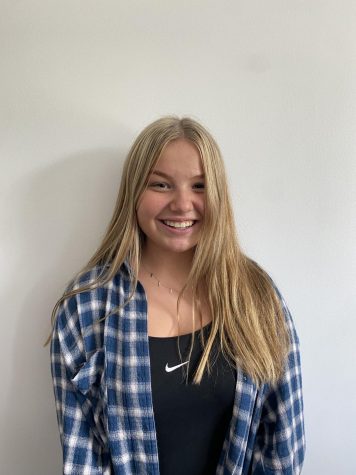
Elle Moulder is a sophomore and this is her first year on staff. She is currently a student at the University of Alabama Early College. She wants to...
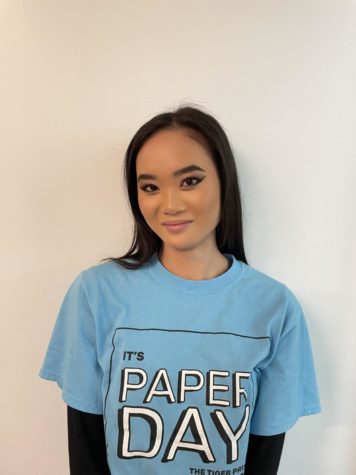
Mena Walker is a senior and this is her second year on staff. In school, she’s involved in NHS, Varsity Tennis, Galley Club, and Book Club. She is...
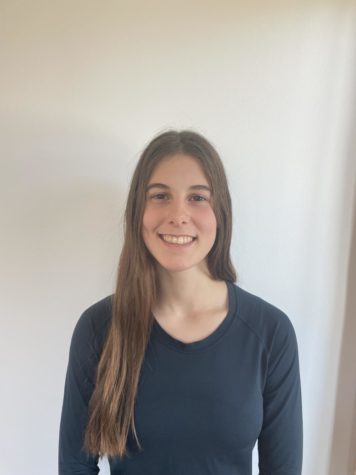
Isabella Vaz is a sophomore in her second year on staff. She enjoys hanging out with friends, traveling, and watching Netflix. Her favorite thing to do...



